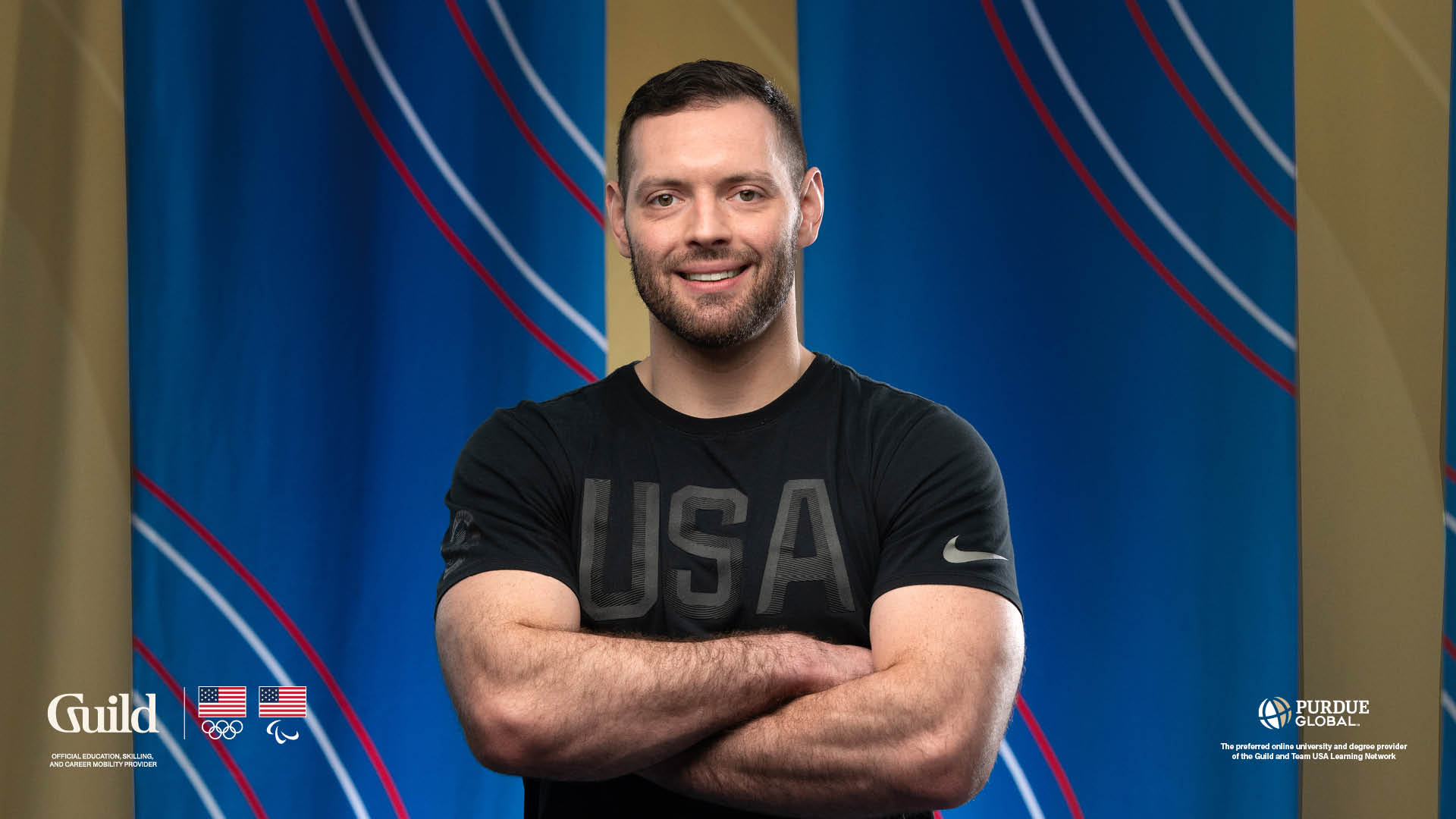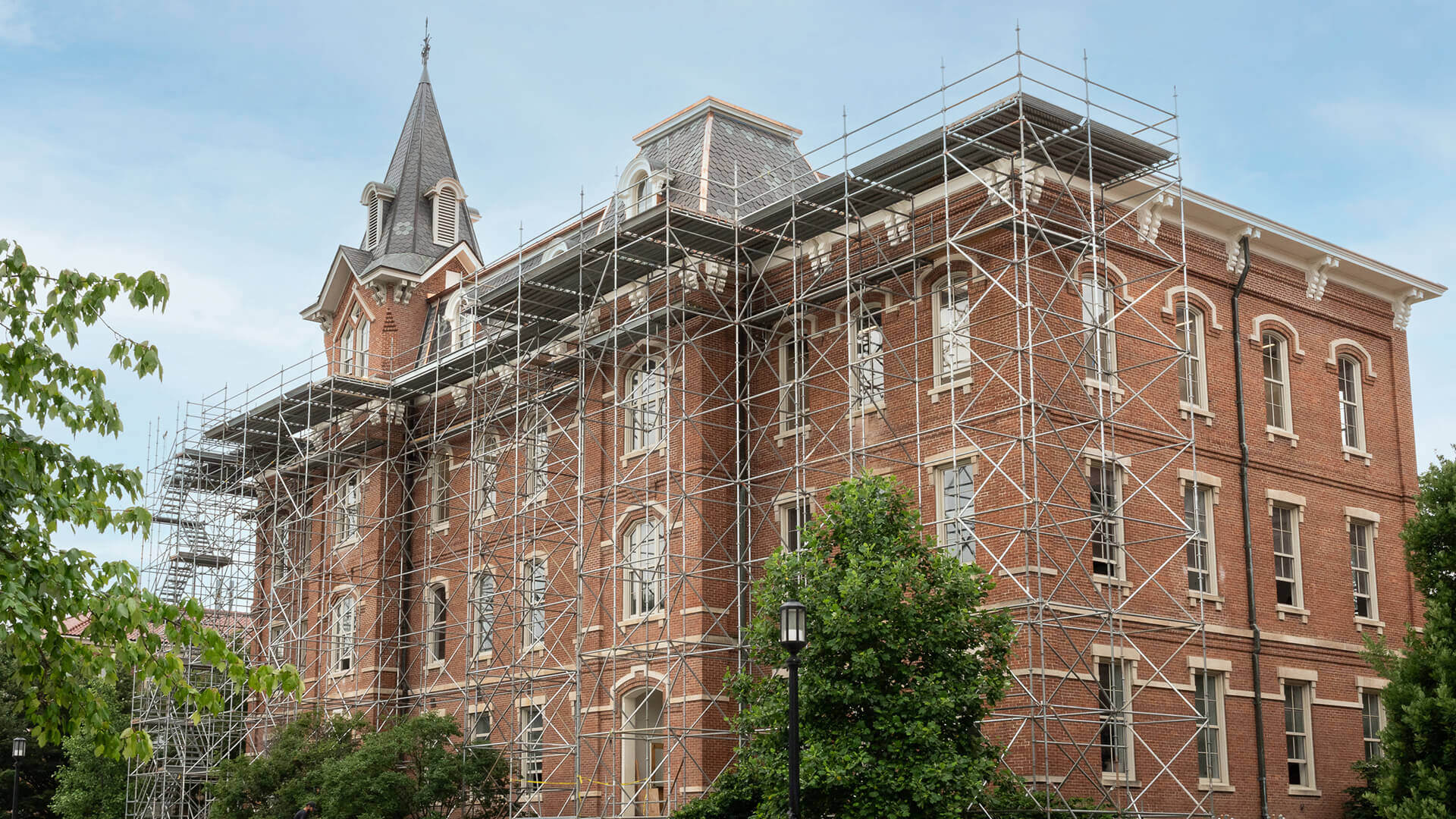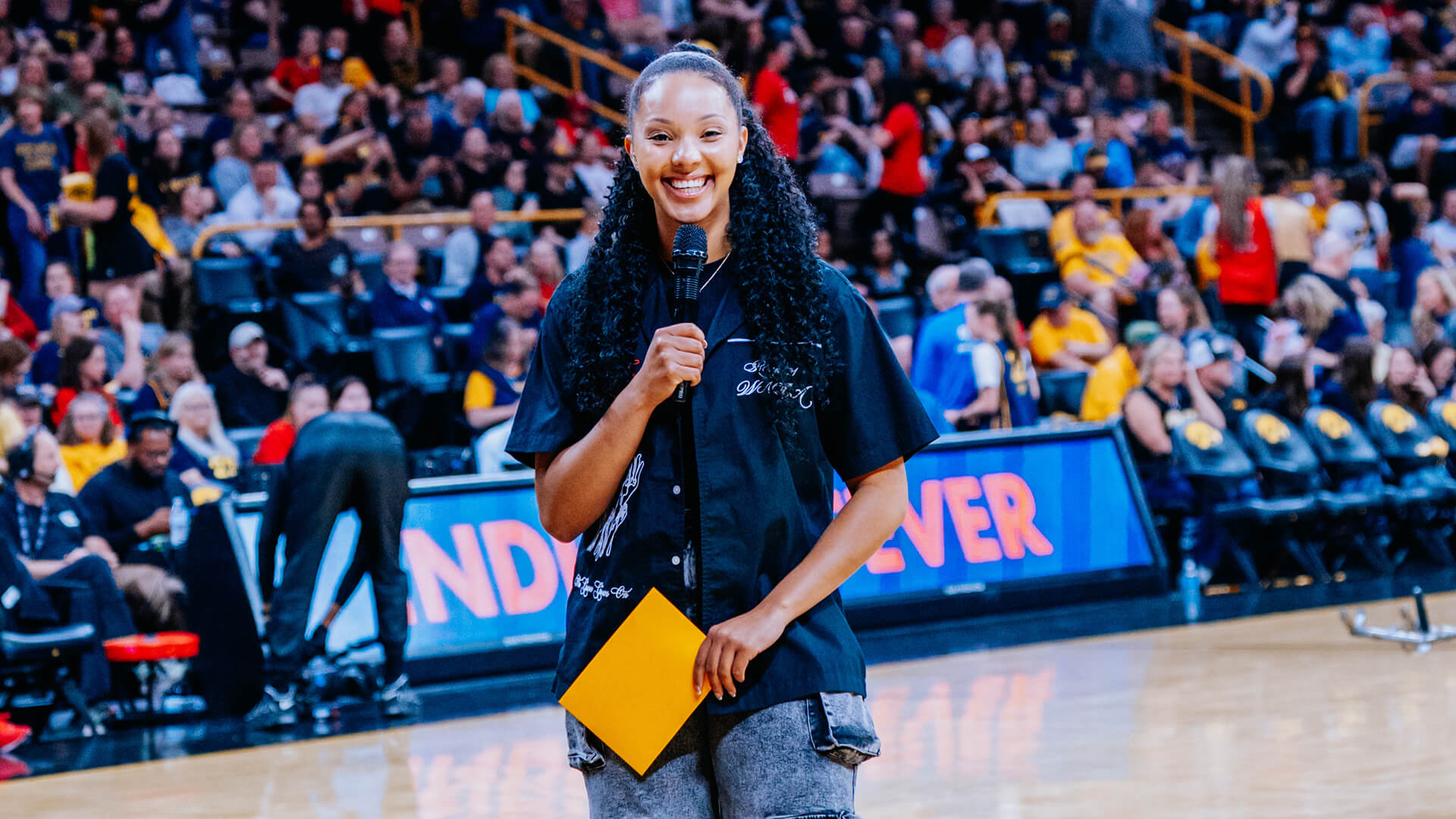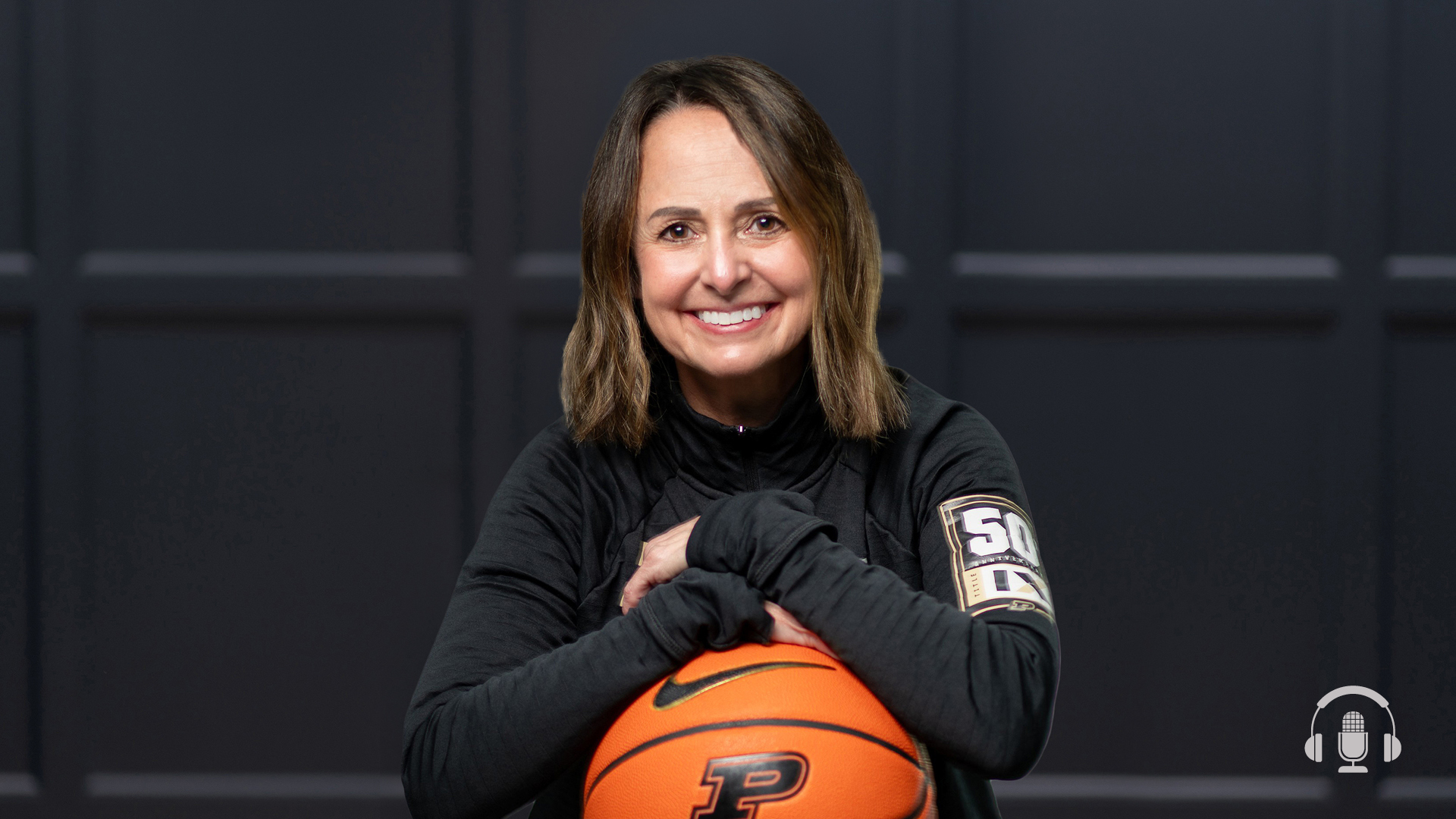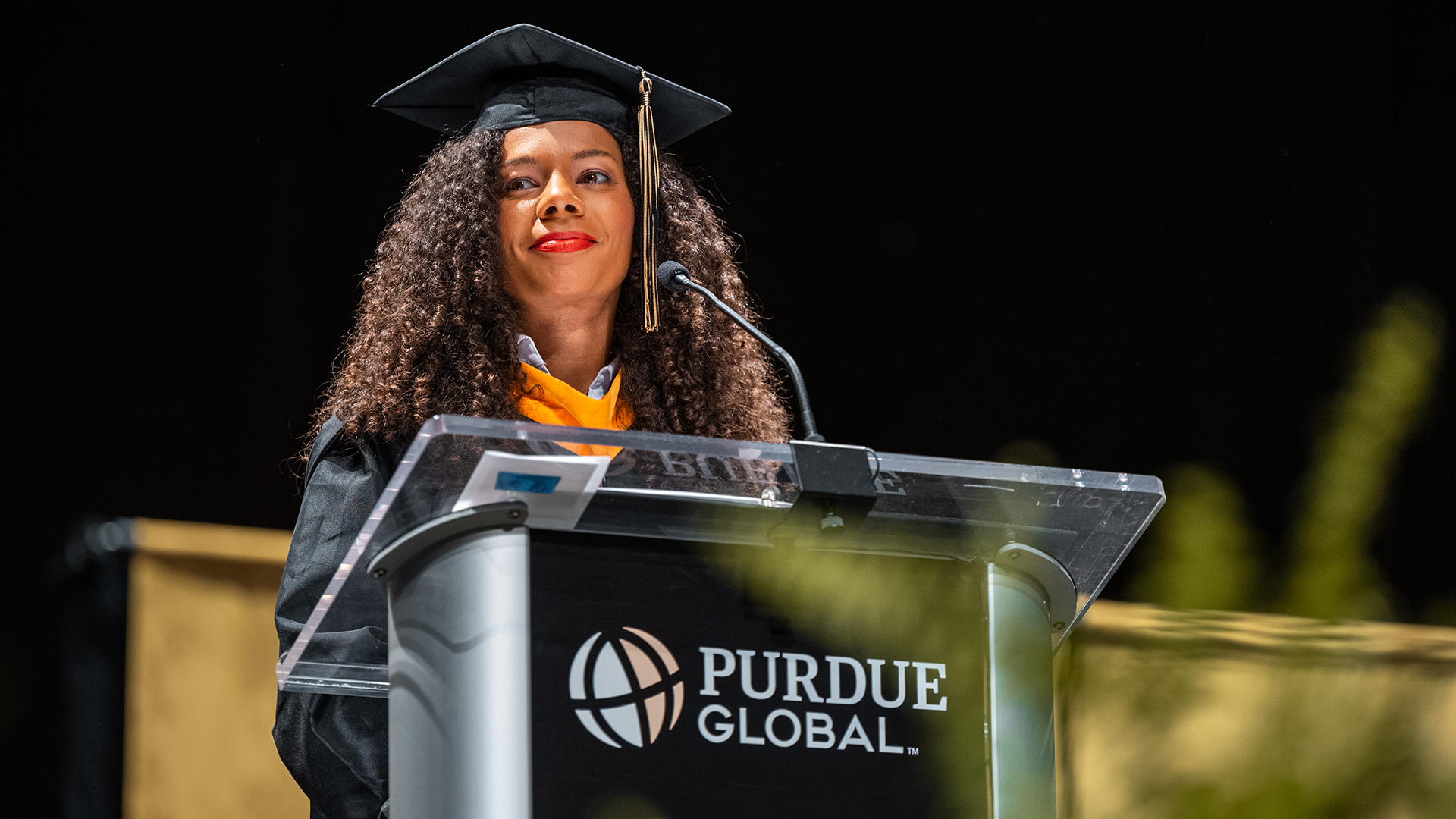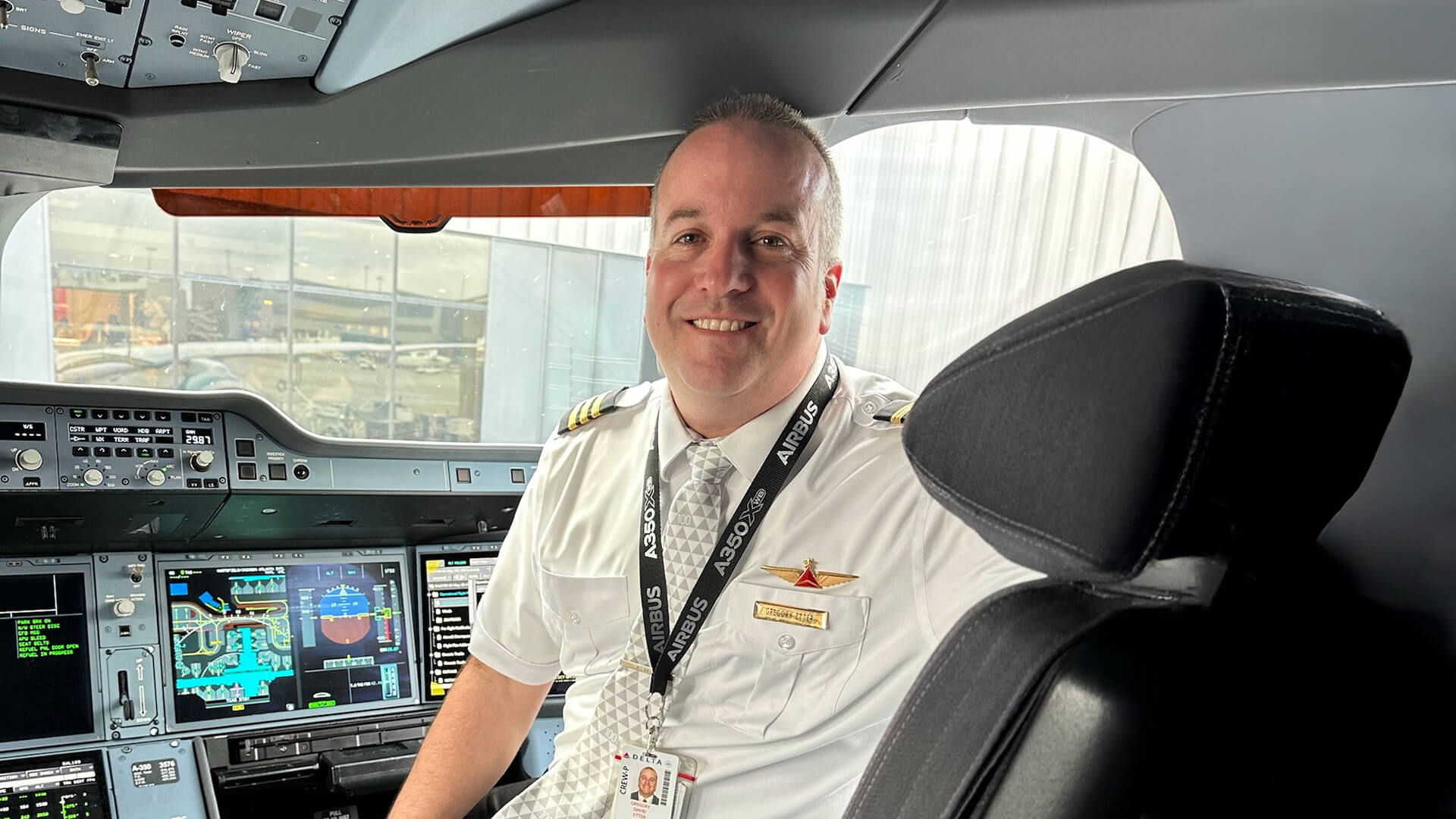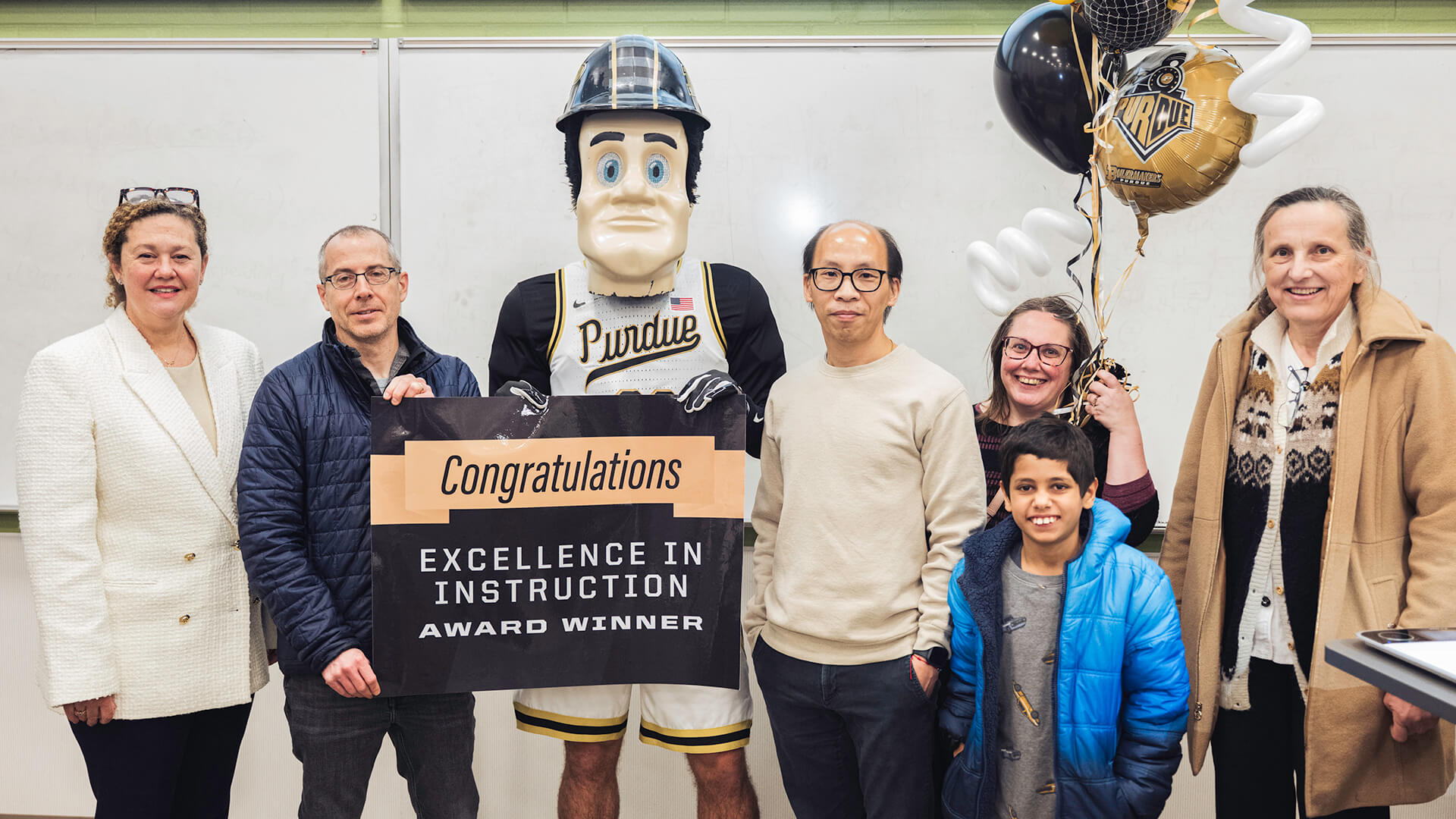Current events, free-flowing conversations offer students an impactful environment for innovative learning
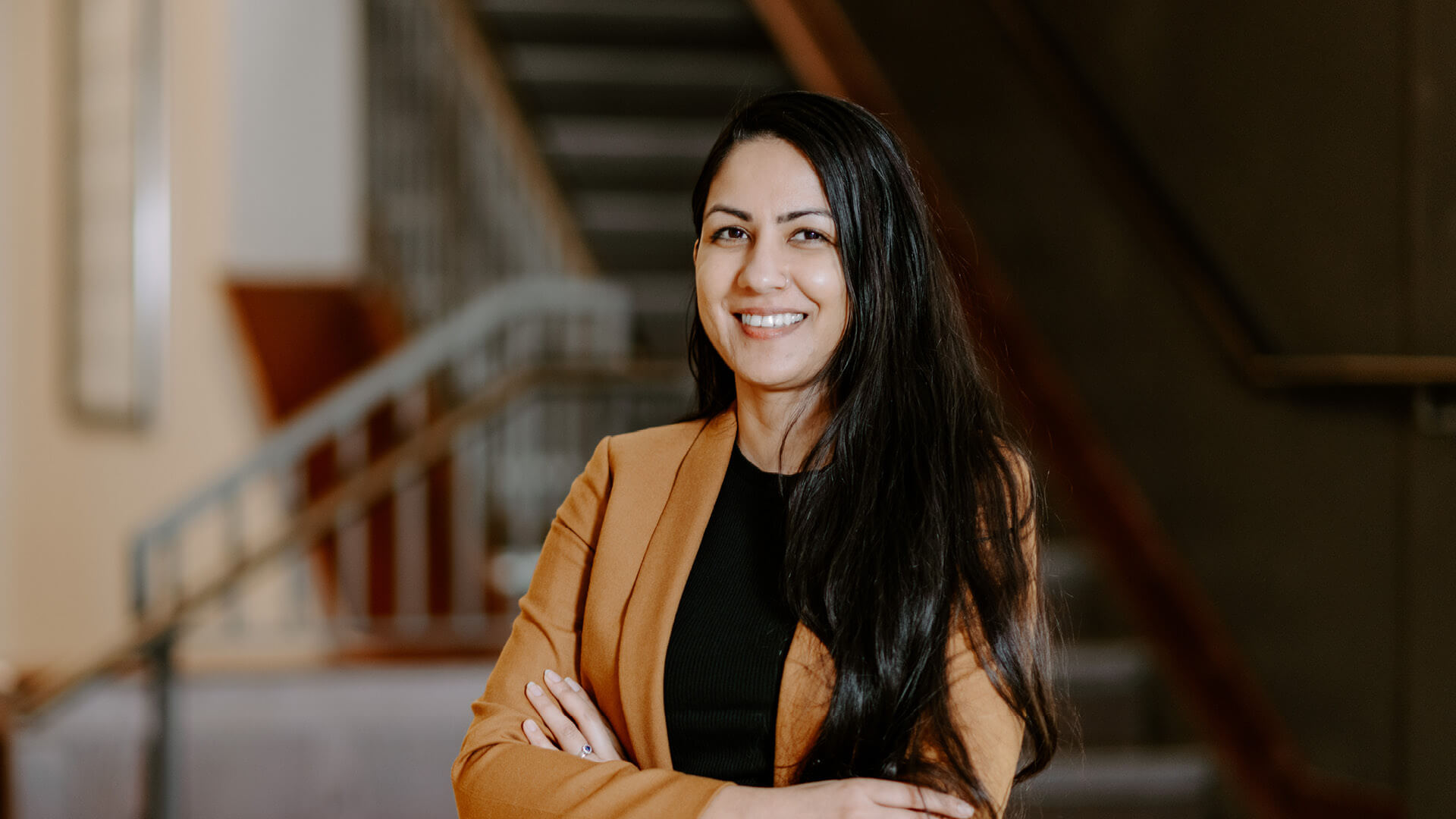
Swati Srivastava, an assistant professor of political science, strives to keep students at the center of everything she does – to the point of insisting on getting a University Hall classroom with windows. “I care where students are going to learn,” she says. (Purdue University photo/Kelsey Lefever)
Exceptional Early Career Teaching Award: Professor Swati Srivastava
On a rainy spring morning in a windowed classroom on University Hall’s third floor, political science professor Swati Srivastava and a dozen students gather for a discussion not unlike many underway across campus.
Current events of the day take center stage as they examine the complex intersections where social media, ethics, freedom, privacy and policy meet globalism, economic inequality, institutional power and tech-industry giants. This was no casual conversation, however. It’s the typical, purposeful format for Srivastava’s 75-minute, senior-seminar Global Governance class.
“Professor Srivastava does a terrific job of building the class around current-event topics, specific articles and readings for lively, meaningful, open discussions. She helps us learn as well as delve deeper into the world that we are all interested in,” says Tabitha Akoto, a political science major from Bolingbrook, Illinois, who is graduating in December.
All in a day’s learning for an award-winning College of Liberal Arts professor and her students. And this lively exchange is between a roomful of bright young students and Srivastava, one of three recipients of Purdue’s Exceptional Early Career Teaching Award for 2023. The award recognizes assistant professors who demonstrate superior ability in communicating the chosen material to their undergraduate students and stimulating their desire to master the course material.
The value of a liberal arts education is not telling them what to think, but how to think. And the way they practice critical thinking is by thinking aloud over and over again.
Swati Srivastava
Assistant professor of political science, College of Liberal Arts
“What’s different in a political science classroom, we are much more comfortable letting our students develop their own critical thinking about knowledge,” Srivastava says. “The value of a liberal arts education is not telling them what to think, but how to think. And the way they practice critical thinking is by thinking aloud over and over again. I’m not interested, in my classes, to be the sage on the stage.”
Srivastava wants her students to be aware of the vast diversity and dynamics of global politics — who has power, how they use it and how students fit into those power structures. She taps into their intrinsic curiosity about the world. Regardless of their life experiences, demographics, upbringing or political persuasion, she says, her students will be deeply affected by the outcomes of diverse global problems such as climate change, conflicts in the Middle East and Ukraine, Brexit and Big Tech dominance.
In Srivastava’s teaching model, the happenings in the world from the past 24 hours often provide the course materials and tools for her classes:
- Lecture slides for Introduction to International Relations include images, videos and news headlines, often incorporating same-day events, to expand on course concepts.
- For Global Governance, she eschews a textbook and instead assigns a mix of scholarship, long-form journalism, films, podcasts, policy reports and social media posts, where the learning is guided through current news articles and applicable book chapters — and not simply from a typical textbook.
- In Technology, Great Power and Its Responsibilities, a theory-heavy course offered through the acclaimed Cornerstone program in the College of Liberal Arts, classes can begin with exercises where paired students read aloud selected passages multiple times, providing the basis for the class discussion.
For the initial discussion point at a recent Global Governance class, Srivastava drew from a Foreign Affairs article about COVID-19 tracking applications developed through a tech partnership between Google and Apple. She then pivoted, amplifying the discussion with a video clip of TikTok CEO Shou Zi Chew’s controversial and timely testimony before Congress.
‘Taking ownership of the class’
Describing those moments in the classroom when she’s realizing her teaching is connecting with the students, she uses a tennis and volleyball match analogy to explain: “The students are trading these volleys … and when they’re carrying on a conversation for, like, 10 minutes without me saying anything, those days are fun. They’re driving the conversation. It’s becoming clear they’re taking ownership of the class.”
In her 2022 book, Hybrid Sovereignty in World Politics, Srivastava explores how sovereign power is expressed through nonstate actors such as security contractors, business associations and nongovernmental organizations. At the same time, themes from research prove central to Srivastava’s teaching and class discussions.
“Similar to fact-based engineering or science classes, our classes are based on peer-reviewed, social science research,” she says. “But we’re providing students with the research-based background that they can use to inform what they think about the world. I also want them to know when the research is not enough, when to ask other questions for further research.”
Srivastava and longtime Purdue political science professor Eric Waltenburg launched the Political Science Undergraduate Research Collaboratory in Fall 2021, providing a small-group educational experience for students who want to hone their research skills in an academic environment. Its primary purpose: to address inequities for undergrads to ensure they can connect with faculty to have access to robust research experiences.
The new program perfectly aligns with the Cornerstone initiative that first attracted Srivastava to Purdue five years ago. “With the Cornerstone program, the goal is to have smaller, more intimate classes at our large university,” she says.
The public university’s purpose
A native of California, Srivastava joined the Purdue faculty in 2018 after serving as an assistant professor of global politics at Humboldt State University and as a doctoral fellow at the Andrew Mellon Foundation and American Council of Learned Societies. She gained her undergraduate degree from UCLA, a public university, a master’s degree at the University of Chicago and her PhD from nearby Northwestern University, both private institutions.
Those experiences have shaped her views as a professor, particularly teaching at a public university with a land-grant mission to provide, among other priorities, opportunities for students who might have thought Purdue was not the place for them.
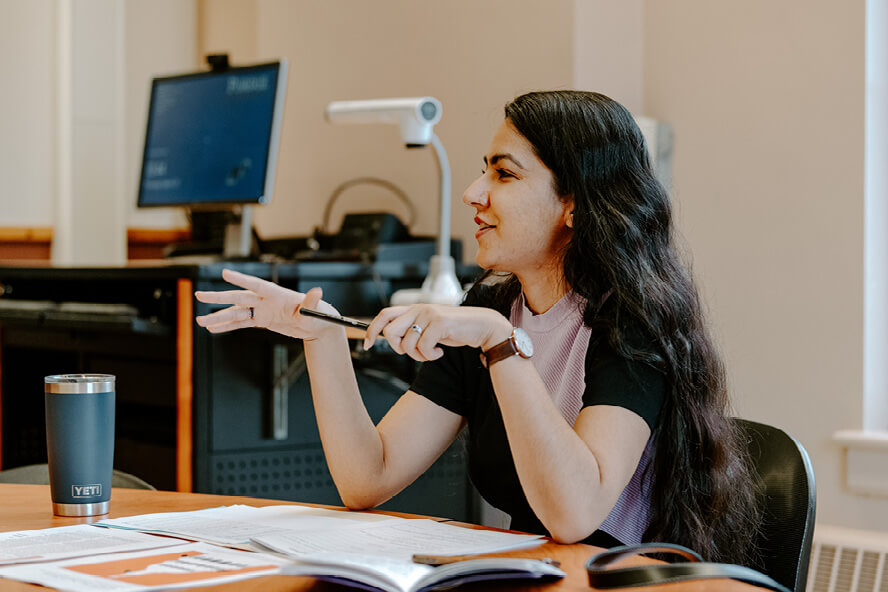
We have a wider range of students who come into our classes, some who might not have imagined themselves in college. So, the education can be transformative for students at a university like Purdue.
Swati Srivastava Assistant professor of political science, College of Liberal Arts
“Purdue, as a public university, was really important to me,” Srivastava says. “We have a wider range of students who come into our classes, some who might not have imagined themselves in college. So, the education can be transformative for students at a university like Purdue.
“And I am so appreciative that Purdue formally recognizes junior faculty at the early career stage who are investing their time in teaching that’s considered excellent.”
Degree in 3 Purdue student Stephanie Perun, who will graduate in May, enjoys Srivastava’s unique personal style of teaching, accessibility and mentoring. Srivastava also made herself available to Perun for a research project that had nothing to do with her class.
“Professor Srivastava understands what it means to be a student,” says Perun, a native of Farmersville, Illinois, who plans to attend law school. “She’s incredibly empathetic. And she’s intentional how she structures her classes and presentations, making them super fun.”
Senior Chad Smitson, a Carmel, Indiana, student majoring in political science and economics, was excited to have Srivastava teach his capstone seminar on Global Governance because she also taught the first class he ever had at Purdue, Introduction to International Relations.
“I greatly appreciate Professor Srivastava’s teaching style because she incorporates critical discussion, lots of participation, and an emphasis on real-world events and debate,” he says. “Furthermore, her lectures are fun and engaging thanks to her great sense of humor and the ease with which she not only answers our questions but spins them into challenging ideas for us to wrestle with and come to our own conclusions.”
